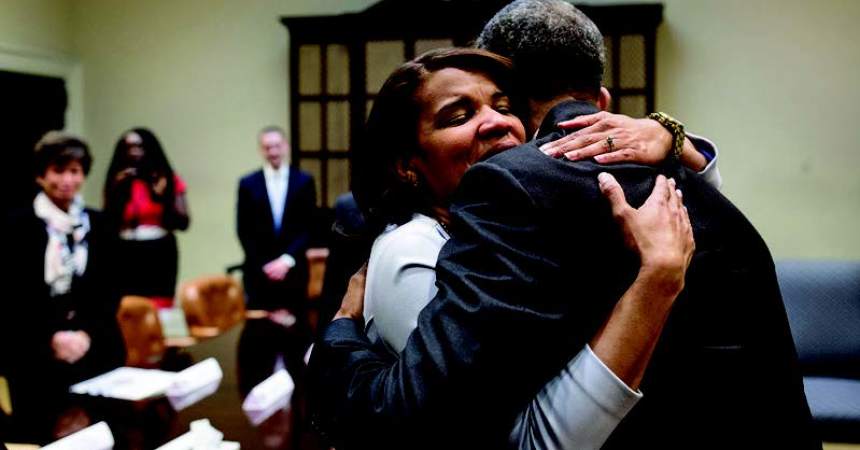
President Obama grants clemency to 61 inmates

President Barack Obama hugs Kemba Smith during a greet with formerly incarcerated individuals who have received commutations, in the Roosevelt Room of the White House, March 30, 2016.
Special to the Outlook Trice Edney News Wire
President Obama has commuted the sentences of 61 drug offenders, the White House announced March 30, underscoring his administration’s commitment to reforming unfair and overly-harsh sentencing laws.
More than one-third of the 61 individuals who were granted clemency were serving life sentences, according to White House Counsel Neil Eggleston.
To highlight his dedication to criminal justice reform and also the rehabilitation and re-integration of ex-offenders, the president shared a meal Wednesday with people whose sentences were commuted by his administration, and by former presidents George W. Bush and Bill Clinton.
“By exercising these presidential powers, I have the chance to show people what a second chance can look like,” Obama said after the meal.
The president added that listening to the stories of the former prisoners “reminded me of how out of proportion and counterproductive so much of our sentencing is when it comes to our drug laws.
“It does not make sense for a non-violent drug offender to be getting 20 years, 30 years, in some cases life in prison,” he added. “That’s not serving anybody. That’s not serving taxpayers. It’s not serving public safety. And it’s damaging families.”
This week’s commutations brings to 248 the number of individuals whom President Obama has granted clemency—more than the previous six presidents combined, according to the White House.
Advocates of criminal justice reform praised Obama’s efforts.
Tennessee Congressman Steve Cohen, ranking member of the House Judiciary Subcommittee on the Constitution and Civil Justice, called the commutations an “encouraging development” and “a significant step” toward a “more rational and fair justice system for Americans who are incarcerated.”
“Not only do our nation’s outdated drug laws disproportionately affect minority populations, but it also costs more than $30,000 per year to incarcerate each individual. These people need to be returned to their families and society,” he added in his statement. “I hope the President continues his efforts to commute unjust sentences during his remaining time in office.”







